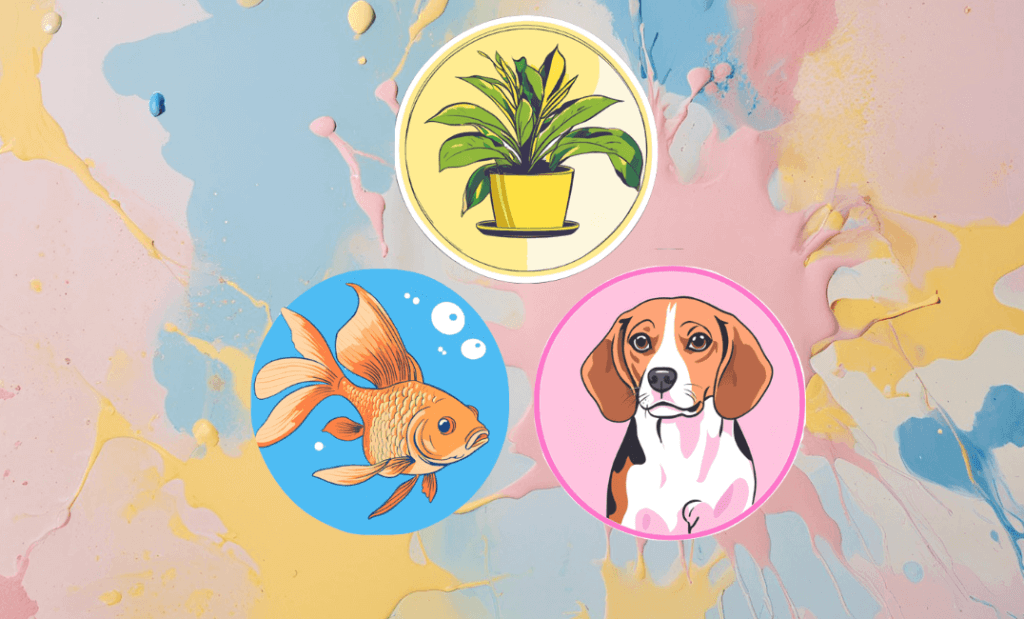Today's Devotion Starts With A Video
If you want a responsibility, get a plant. If its still alive after a year, get a goldfish. If it is still alive after a year, get a dog.
Bill Caldwell
This short video covers one of the foundational lessons I learned in early mental health recovery. The core philosophy behind this advice is not only crucial for mental health and addiction recovery but is also universally applicable. Everyone can benefit from a solid foundation of discernment and careful decision-making. This message of patience is best illustrated in the following passage from the book of James.
“See how the farmer waits for the land to yield its valuable crop, patiently waiting for the autumn and spring rains. You too, be patient and stand firm, because the Lord’s coming is near..”
James 5:7-8
If you didn’t know, early mental health recovery often comes with a voracious need to get things done. Mental health challenges can feel like setbacks to the affected individual and their family. Plans get delayed, dreams are put on hold, and visions of the future become fogged with uncertainty. However, rushing to make up for lost time in recovery can be counterproductive; it was in my case at least.
Before I transitioned out of treatment, a down-to-earth and relatable counselor named Bill gave a thirty-second talk that completely changed my approach to wellness. He shared the story of the plant, the goldfish, and the dog, which spoke directly to my heart. After years of hospitalizations and rushing through the foundational steps of recovery, this simple analogy reset my thinking. Bill helped me see that recovery is a marathon, not a sprint. Plus, he got my attention by mentioning dogs.
"You too, be patient and stand firm... "
I had forgotten about true patience...
The patience described in the passage from James feels distant from my modern life. I’ve never experienced the patience required to cultivate crops as ancient farmers did in the first century. They worked the land with horses, sowed seeds by hand, employed age-old irrigation methods, and crucially, waited for rainfall to nurture their crops. Applying such patience to my own recovery proves challenging.
Previously, my struggles stemmed from fixating on end results. Impatience led me to live too much in the future, robbing me of enjoying the present and fostering a general discontent with the moment.
In the past I struggled because I focused on the end result. Impatience meant living in the future. Impatience meant not enjoying the present. Impatience meant a general discontent for the present moment.
There is no use in rushing...
After over fourteen years of active recovery, I’ve witnessed the consequences when impatience overrides healthy habits. While some rush into getting pets shortly after leaving the psych ward, it’s clear that pets aren’t always the distraction from establishing a solid mental health foundation.
Romantic relationships often emerge as a common diversion from laying down a stable base. I’ve observed individuals finding love within weeks of starting their recovery journey, some even start dating fellow patients in the psych ward. Relationships are a natural part of life, and I’m not suggesting putting your love life on hold. However, entering into relationships during early recovery requires careful consideration.
If it’s not romance, possessions can also serve as distractions. Cars, motorcycles, boats, and other impulse purchases often become escapes for those newly in recovery, masking the challenging emotions that arise during the foundational phase. It’s normal to buy things, I’m not advocating for a miserly approach to recovery. Yet, big-ticket items can easily divert attention from the internal work needed.
For me, simplicity was key during the early years of recovery, focusing on cultivating a relationship with myself. Before I started managing my mental health, I didn’t truly know myself. I used codependent relationships, material possessions, and substances to mask my emotions. Counselor Bill’s analogy about the plant, the goldfish, and the dog emphasizes the need for long-term, incremental steps toward lasting wellness.
Take time to get to know yourself...
Bill’s simple advice is useful for anyone. It doesn’t matter if you are a highly functioning Type A personality, someone searching for a little confidence, or an individual with no history of mental health diagnoses—the lesson from the plant, the dog, and the goldfish is universally applicable.
When Bill shared this adage, he was essentially asking me, “Do you have enough time and patience to take care of yourself?” If I can’t take care of a plant, a goldfish, or a dog, then I don’t have enough time to truly take care of myself.
This message resonates beyond just addicts and individuals with mental health conditions. In today’s world, many people find themselves stretched thin for various reasons, often placing themselves at the bottom of their priority list. It’s essential for everyone to take the time to nurture themselves. Give yourself permission to prioritize your own well-being and self-care.
Loving God, help me embrace the here and now. Guide me to take little steps while I enjoy the moment.
AMEN

2 Responses
I thoroughly enjoyed your short, humorous, instructional video on recovery, Pastor Seth! Your devotion on patience is so true, that we need to slow down to take time for ourselves, and realize that we can no longer help others if we entirely drain our emotional energy doing so. Thank you.
Thank you for mentioning helping others! Got to help myself first!